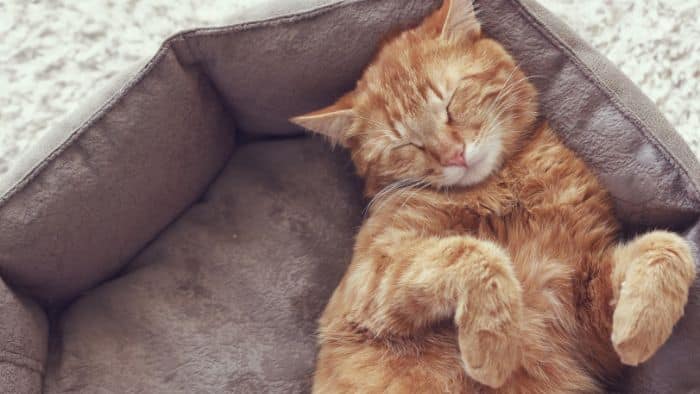Do Cats Sweat? How to Cool Down an Overheated Kitten

As a veteran cat lover, you must know that domestic cats first lived in the deserts of Africa and Arabia. Yes, cats’ ancestors came from scorching places. But you’re unlikely to see a cat sweating even on a hot day. So, how do cats keep themselves cool?
Although you may never see them sweat, cats are born with an efficient body cooling system. One thing that makes humans different from other animals is that humans are born with sweat glands all over the body. In contrast, cats’ sweat glands are only distributed in a few specific hairless areas, including the skin around the paws, lips, chin, and anus.
When the body sends a message to the brain that the body temperature is too high, the brain signals these glands to start sweating. When sweat evaporates, it creates a cooling effect on the skin.
Stress can also cause cats to sweat. If a cat is frightened or stressed in the veterinary clinic, it will often sweat through its tiny paws, leaving wet footprints on the exam table.
Tips for cooling cats
Since cats have limited sweat glands, sweating alone cannot lower an overheated body temperature. Cats can also cool down by grooming themselves, so you may see cats grooming more frequently in the summer.
When excess saliva evaporates, it cools the skin. This is normal behaviour cats use to get rid of excess body heat and is different from excessive grooming due to skin problems, pain, anxiety, or stress. Cats overgroomed due to disease will develop too-short, overgrown hair, hair loss, or red skin in the areas of overgrooming.
Another trick for cats to cool down is to sleep during hot hours. In the summer, cats—especially outdoor cats—choose to stay out during the day and come out at night.
Like their wild ancestors and other wild cats, domestic cats will find a nice, cool, secluded place to rest, spreading their bodies out on an excellent surface to cool off. Once the sun goes down, resume hunting at night.
If your cat is panting, place your cat in a cool, calm area with a bowl of water to cool her down. If the panting persists or your cat is acting unusually, this could be a sign of heat stress or heat stroke. Then, take the cat to the veterinarian immediately.
Does excessive sweating indicate a medical condition?
Cats generally do not sweat excessively; however, if a cat still leaves sweaty footprints in a relaxed environment, this may indicate stress and anxiety and should be seen by a behaviourist or veterinarian.
Some owners may notice excessive sweating around their cat’s mouth, but these conditions are usually caused by excessive salivation due to dental or stomach problems. Occasionally, cats will drool happily when being petted. Consult your veterinarian if you notice excessive moisture around your cat’s mouth.
